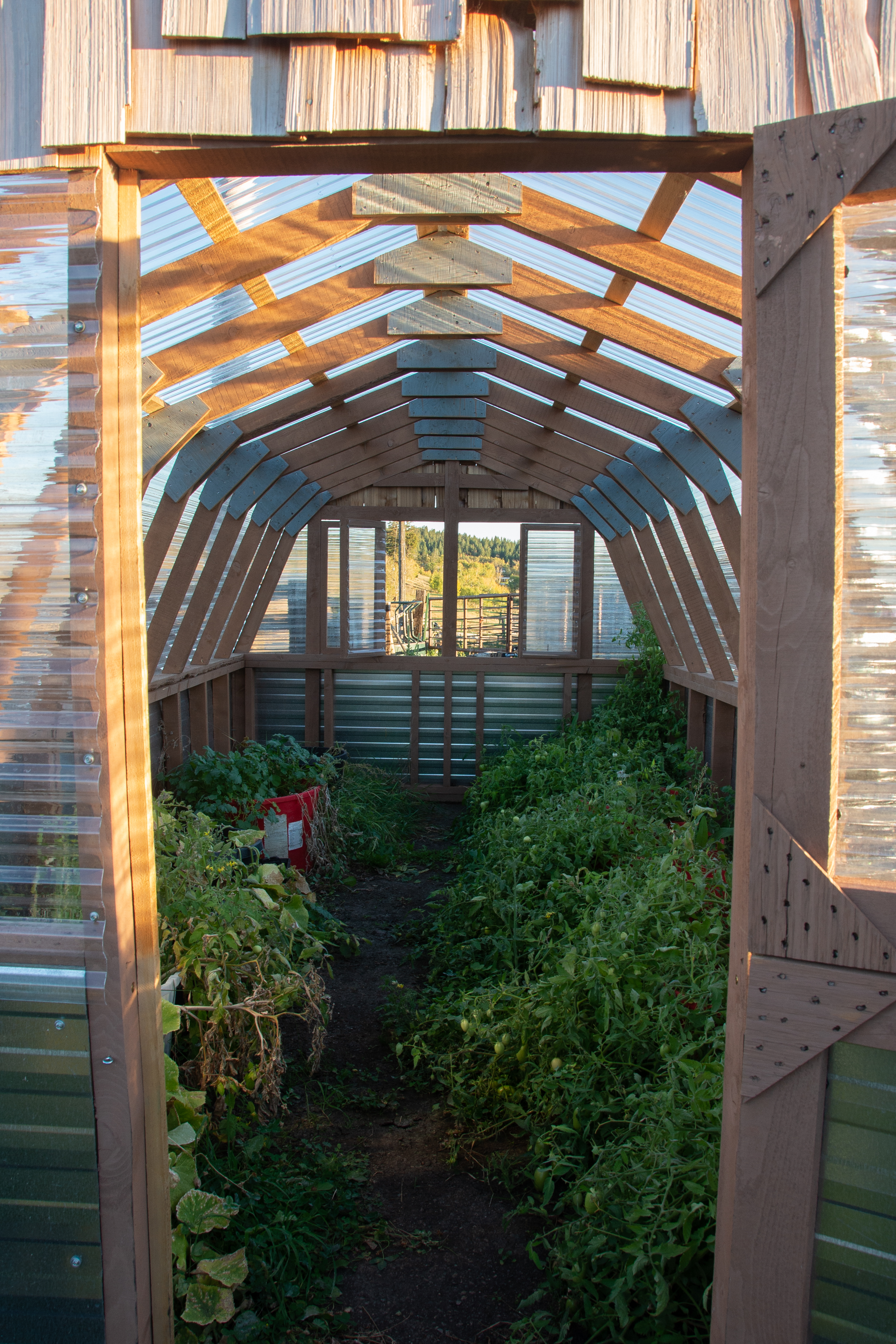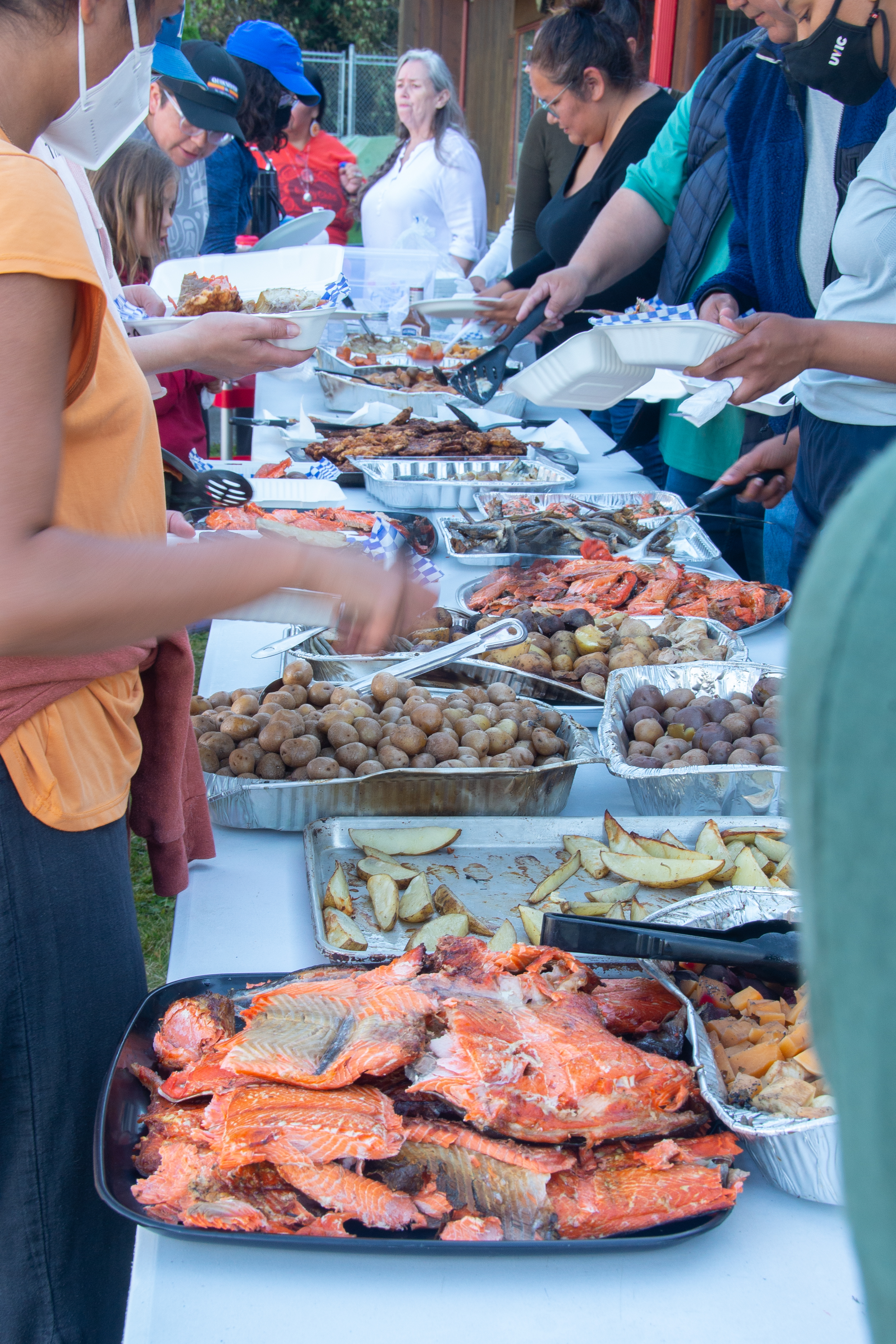At the First Nations Health Authority (FNHA), we have the privilege to witness, learn from, and support the food security and food sovereignty journeys of many First Nations communities in British Columbia (BC).
We have seen community-led planning, programs, and initiatives demonstrate time and again that Indigenous food systems and foodways are inherently wholistic and that everything is connected.
When working on anything related to food in First Nations communities, there are often discussions on protecting, stewarding, and being in good relationship with the lands, waters, and all the living beings that support a healthy ecosystem. Indigenous food security is interconnected with sustainability – ensuring our foods are there for generations to come. Many communities have woven the sacredness of food throughout their entire community, providing many opportunities for intergenerational knowledge sharing.
One of the core ways the FNHA supports First Nations food work is through the Food Systems Program (FSP). The FSP, previously known as the First Nation Food Systems Program, has been running in BC since 2009 and has grown from 17 to 70+ First Nations member communities.
The FSP's original focus was on supporting communities to increase their access to fresh fruits and vegetables through community gardens. After listening to member communities regarding their needs and wishes for the program, we have evolved to support and centre Indigenous food-related activities (e.g., community harvesting events, food preservation, and medicinal gardens), understanding that Indigenous Food Sovereignty (Self-Determining Food Systems) and Food Security are foundational to each community's health and wellness.

The main supports that have been provided by the program historically are small grants (e.g. for tools, materials, infrastructure, or supplement wages); providing technical garden supports; and facilitating regional and provincial gathering opportunities to support Nation-to-Nation knowledge sharing and networking. The Indigenous Sport, Physical Activity & Recreation Council (I·SPARC) has continued many of these supports to communities, while also elevating Indigenous-led innovation and leading with a self-determined community capacity development approach.
Previously delivered by the Heart and Stroke Foundation, the FSP was transferred to another of our partners – I·SPARC – in June 2022. The FNHA is appreciative of our partnership with I·SPARC and is committed to continue the work together to transform the FSP to better serve communities by regularly seeking community feedback at gatherings and working relationally with communities. I·SPARC and the FNHA recognize the need to center Indigenous/wholistic perspectives on wellness, knowledge, foodways, and the relationships, values, and approaches each First Nations has to food. As well, the FSP recognizes, commends, and supports all the good work that is already being done around food in First Nations communities.
I·SPARC prioritized the need for relationship building and created a community-centered report: A Journey Toward Indigenous Food Security & Food Sovereignty.
The following stories are from this community-centered report and show ways in which food is interwoven into community gatherings, as well as how food-harvesting areas can be safe and healing spaces within community. Through these stories, we see the intricacies of Indigenous Food Systems – and how ceremony, medicinal gardens, food harvesting, preserving wild game and fish are all factors that support the overall health and well-being of communities.

Kwakuitl (North Island, Vancouver Island Region):
Kwakuitl First Nation has found that community engagement tends to increase when there are special events to look forward to, like the annual pit cook at harvest time, with food from the gardens and the sea. This method of cooking, and ceremony around it, has existed for millennia until it was suppressed during colonialism. In recent years, communities have been bringing it back. Elders and Knowledge Holders are passing on knowledge and techniques to the next generations who want to restore this practice.
“Food sovereignty is about more than just food," says Ross E Hunt Jr, Kwakuitl First Nations community member. “It is everything. It's in our history, it's in our stories, water, land, and air – it's supernatural."
Nuxalk Nation (Vancouver Coastal Region)
Nuxalk Nation has focused on various levels of Indigenous food security and food sovereignty work, as well as how food-related work is impacted by climate change. The land, teachings through metaphor, and regenerative spaces like gardens can bring safety to our nervous systems and provide opportunities for transformation.
Ted Campbell, who is a Youth Clinician at Nuxalk Nation, and a food champion, says, “I am a clinical therapist, and I do some therapy in the garden, as it is a great place to do trauma therapy. With one child, we were able to work through some early trauma. While pulling weeds, we uprooted some ants and the ants' home. This helped the child reflect on his own life's parallels of being uprooted and displaced from his home. We were able to dive deep into some tough topics. Talking while in the safety of the garden space can be very therapeutic."
Westbank (Interior Region)
Westbank First Nation is one of the many First Nations communities in BC taking steps to be more food-secure and self-reliant. As they prepare their community and build on their relationship with the lands to better respond to climate events (e.g., wildfires) and other factors (pests), Westbank First Nation furthers their learning journey around food growing and harvesting, starting with their young ones.
“Being able to share so much food with community and provide a neutral, safe space to gather for children and our wellness program really fills my cup," says Megan Stewart, Administrative Lead and Community Garden Coordinator, Westbank First Nation.
We are deeply grateful for the generosity, wisdom, and commitment of the community members, including Elders and Knowledge Keepers, who share their time and energy to advance First Nations food-related work.
Reminder to check out the Food is Medicine Cookbook! Take a photo and share your Food is Medicine creation here, tag us on social media @FNHA and @isparchealthyliving. Use the hashtags #foodismedicinefnha #isparc and #isparchealthyliving – we want to hear from you!
Check out more Food is Medicine resources below:

